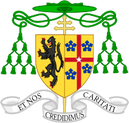
Letter of Archbishop Lefebvre to Cardinal Seper
23 June 1979
Your Eminence,
Upon my return from the conversation which we had this morning I am, as I promised you, summing up the conclusions in the lines that follow.
Insofar as the ordinations to the priesthood next Friday are concerned, it seems to me that from every point of view it is preferable for me to go through with them. Not to mention the deacons themselves, their families and their friends who have made all their arrangements for this ordination ceremony, it seems to me that a postponement would provoke in public opinion an expectation of a reciprocal gesture on the part of the Holy Father.
This exception, which would be exploited by the press, would place the Holy Father in an invidious position, whether or not there was a delay. Any gesture in favor of tradition would be interpreted as a victory for Ecône, something for which I neither wish nor seek in any way.
On the other hand, proceeding with the ordinations, even if interpreted unfavorably for Ecône, would have the advantage of allowing the Holy Father to act freely in favor of a 1: broadening of the liturgy, without allowing anyone to draw conclusions as to an advantage obtained by Ecône. It is the entire Church which would be concerned, and would benefit, through this.
While waiting, the problem of Ecône would stay out of the limelight. It could be resolved easily once the liturgical problem had been solved for the best (in this respect I will take the liberty of begging the Holy Father not to limit such freedom solely to the Liturgy of the Mass, but to extend it to the Liturgy of the Sacraments, above all that of orders). So as to assist towards this end I promise not to carry out any more confirmations and to postpone the October ordinations to the diaconate.
I make bold, then, to hope that the faithful will have the satisfaction of being able to have the Sacraments of Baptism and Confirmation given according to the old rite, and to receive the Sacraments of Marriage, Extreme Unction, and Penance in the same fashion, and that clerics will be ordained according to the old rite, if they ask.
Your Eminence, so happy am I at the thought that the Holy Father is preparing to issue this decree 3 that I should not be able to thank him enough, and to thank God and the Virgin Mary for inspiring him to take this salutary step.
Allow me, Your Eminence, to express my respectful and cordially devout sentiments in Jesus and Mary.
Marcel Lefebvre
3. The Archbishop was referring to a document which Cardinal Seper had made known to him several times during their discussions. It would have removed any restrictions on priests using the liturgy as it was in 1969. More details of this decree are provided in a letter of the Archbishop to Cardinal Seper dated 15 December 1980.
Your Eminence,
Upon my return from the conversation which we had this morning I am, as I promised you, summing up the conclusions in the lines that follow.
Insofar as the ordinations to the priesthood next Friday are concerned, it seems to me that from every point of view it is preferable for me to go through with them. Not to mention the deacons themselves, their families and their friends who have made all their arrangements for this ordination ceremony, it seems to me that a postponement would provoke in public opinion an expectation of a reciprocal gesture on the part of the Holy Father.
This exception, which would be exploited by the press, would place the Holy Father in an invidious position, whether or not there was a delay. Any gesture in favor of tradition would be interpreted as a victory for Ecône, something for which I neither wish nor seek in any way.
On the other hand, proceeding with the ordinations, even if interpreted unfavorably for Ecône, would have the advantage of allowing the Holy Father to act freely in favor of a 1: broadening of the liturgy, without allowing anyone to draw conclusions as to an advantage obtained by Ecône. It is the entire Church which would be concerned, and would benefit, through this.
While waiting, the problem of Ecône would stay out of the limelight. It could be resolved easily once the liturgical problem had been solved for the best (in this respect I will take the liberty of begging the Holy Father not to limit such freedom solely to the Liturgy of the Mass, but to extend it to the Liturgy of the Sacraments, above all that of orders). So as to assist towards this end I promise not to carry out any more confirmations and to postpone the October ordinations to the diaconate.
I make bold, then, to hope that the faithful will have the satisfaction of being able to have the Sacraments of Baptism and Confirmation given according to the old rite, and to receive the Sacraments of Marriage, Extreme Unction, and Penance in the same fashion, and that clerics will be ordained according to the old rite, if they ask.
Your Eminence, so happy am I at the thought that the Holy Father is preparing to issue this decree 3 that I should not be able to thank him enough, and to thank God and the Virgin Mary for inspiring him to take this salutary step.
Allow me, Your Eminence, to express my respectful and cordially devout sentiments in Jesus and Mary.
Marcel Lefebvre
3. The Archbishop was referring to a document which Cardinal Seper had made known to him several times during their discussions. It would have removed any restrictions on priests using the liturgy as it was in 1969. More details of this decree are provided in a letter of the Archbishop to Cardinal Seper dated 15 December 1980.
